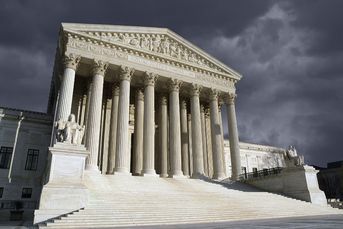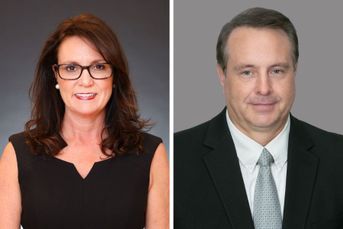Political uncertainty steering 401(k)s away from ESG

While about half of plan consultants and advisors recommend sustainability-themed investment options, employers are worried about legislative changes around ESG.
With Congress seeking to tamp down on ESG and the first 401(k) lawsuit over ESG having been filed, some employers are scared about the idea of including sustainable investment options in their retirement plans.
More than 70% of retirement plan consultants and aggregators say that political uncertainty is a leading reason why their clients avoid funds that consider ESG factors, according to results of a survey this week from Pimco. Such funds aren’t used much in retirement plans, and a recent rule from the DOL that addresses the issue has not yet had much effect, the bond-fund specialist found.
Despite getting an OK from the Department of Labor to include funds with ESG criteria, most consultants and retirement plan aggregator firms said they have not changed their stances. The data show that just over half (52%) of institutional consultants recommend sustainable funds to retirement plan clients, with none saying they are more likely to do so because of the new rule. While 38% of aggregators said they had previously recommended those options, another 13% have started to because of the DOL’s stance, according to the report.
Plan advisers “are very cautious” on ESG, said Fred Barstein, CEO of The Retirement Advisor University. “They’re being more responsive than proactive — which is also the case with retirement income, which is much less controversial.”
It comes down to what plan sponsors want, and that can vary, Barstein noted. “It depends on the type of company, the type of plan and the location. If you’re a 403(b) plan in Northern California, it might be a little different than if you’re a regular 401(k) in the South.”
The paper, Pimco’s U.S. Defined Contribution Consulting Study, is based on responses during the first quarter from 36 consulting and advisory firms that represent a total of more than 25,000 clients and $7.3 trillion in DC assets.
While some plan sponsors are worried about political changes that could affect the eligibility of sustainable funds in 401(k)s, some cited perceptions about performance issues, although the preponderance of that concern varied, cited by 75% of aggregators and 41% of consultants.
Conversely, the biggest factors behind interest in ESG in 401(k)s are alignment with organizational culture (88% of aggregators, 78% of consultants) and demand from plan participants (88% of aggregators, 67% of consultants).
It’s not uncommon to see ESG-themed funds in big 401(k) plans — a report earlier this year from NEPC found that 79% of plans include funds that integrate ESG factors, representing 17% of plan assets. But investment options that screen for nonfinancial factors appear in about 6% of plans, accounting for 0.03% of assets.
The Pimco report was released toward the conclusion of what House Republicans have dubbed “ESG month,” which includes six hearings on the topic and markups for numerous bills.
On Tuesday, the House Financial Services Committee unveiled four pieces of legislation, three of which are compilations of bills that target ESG issues in investing.
Those include H.R. 4767, the “Protecting Americans’ Retirement Savings from Politics Act,” which would overturn SEC regulations and guidance on shareholder proposals, making it more difficult for ESG-related resolutions to end up on proxy ballots. A related bill, H.R. 4655, the “Businesses Over Activists Act,” has a similar objective.
Another bill, H.R. 4790, the “Guiding Uniform and Responsible Disclosure Requirements and Information Limits Act,” seeks to water down or eliminate certain disclosures the SEC is expected to implement for public companies, such as carbon footprint and climate risk information.
Finally, H.R. 4823, the “American Financial Institution Regulator Sovereignty and Transparency Act,” seeks to limit the influence of nongovernmental organizations on U.S. banking policy by increasing oversight of federal banking regulators.
Small-cap stocks set to shine as tech giants top out
Learn more about reprints and licensing for this article.








